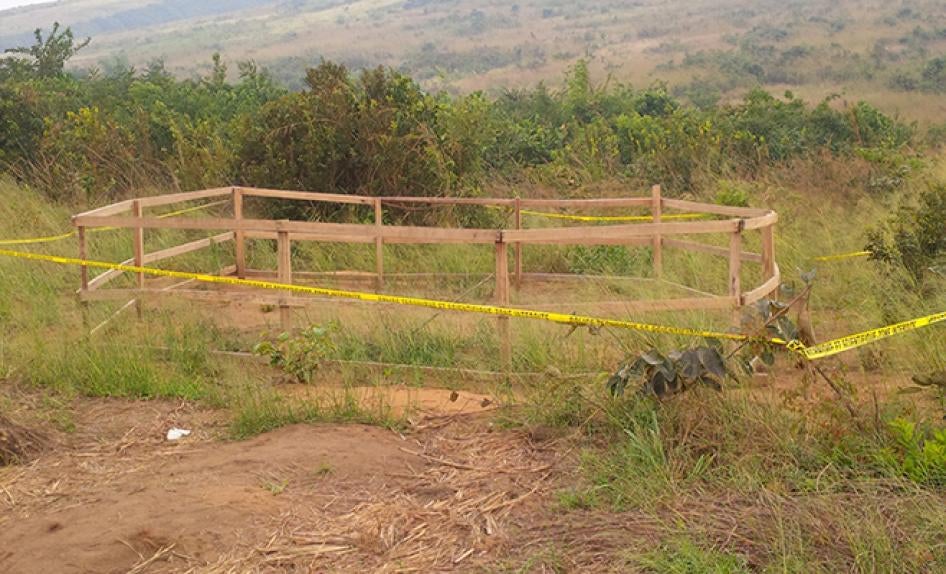One year ago, on the night of March 18-19, 2015, security forces in the Democratic Republic of Congo secretly dug a mass grave on the edge of a cemetery near the capital, Kinshasa, and dumped scores of bodies inside. The next day, local residents of Maluku reported the stench of dead bodies and the soldiers and mysterious truck they had seen in the middle of the night.
Congolese government officials soon publicly admitted that 421 bodies had indeed been interred at the site that night, but said it was a “normal procedure” and that the bodies included relatives of poor families who could not afford burial, unidentified bodies, and stillborn babies. Local Red Cross officials and employees at Kinshasa’s hospitals and morgues, who are usually involved in such burials, strongly contested the claim.
Many Kinshasa residents were outraged. Members of parliament demanded answers about who was buried in Maluku and why it was done in secret by security forces. Threats against a resident who had witnessed the burial and the suspicious death of a nurse who had been in charge of one of Kinshasa’s morgues heightened tensions.
Many family members of victims who had been summarily executed or forcibly disappeared by Congo’s security forces during protests in January 2015, and in an earlier police operation against gang crime, immediately suspected their loved ones were among those buried there. In both operations, the bodies of some of those killed were taken away by security forces and never returned to their families for burial. On June 5, the families of 34 victims filed a public complaint with Congo’s national prosecutor demanding justice and the exhumation of the Maluku mass grave.
Congo’s justice and interior ministers said that if there were any doubts about who was buried at the site, the bodies would be exhumed. Yet despite numerous calls from rights groups, members of parliament, the United Nations, the European Union, and others, no decision was made to open up the grave.
Congolese authorities should use this anniversary to finally give victims’ families the answers and justice they deserve. The long-awaited government reports on the alleged summary executions and enforced disappearances during Operation Likofi and the January 2015 demonstrations should be published and those responsible should be brought to justice. Authorities should also reveal the identities of those buried in Maluku. And with the help of international forensics experts, it is time to move forward and exhume the dead.









